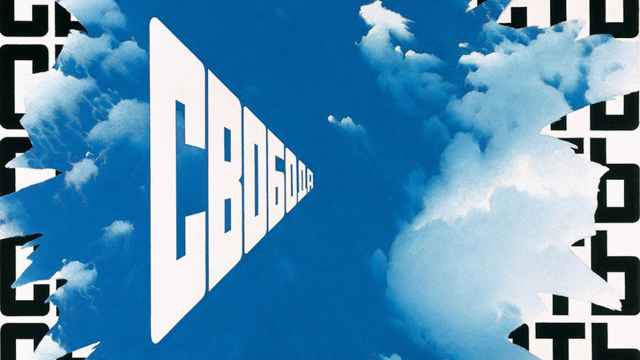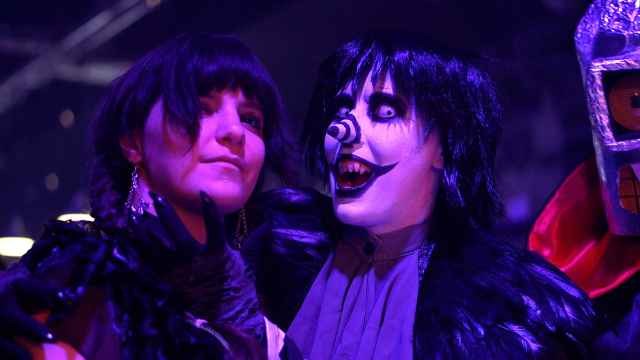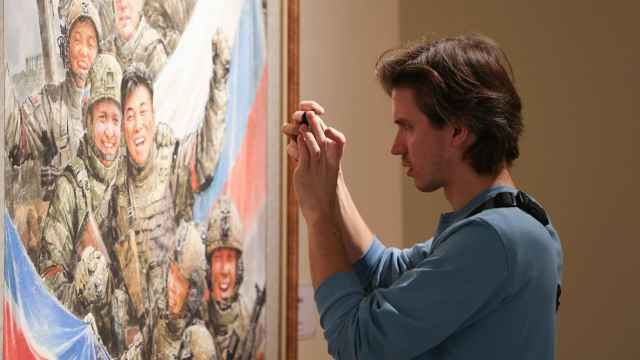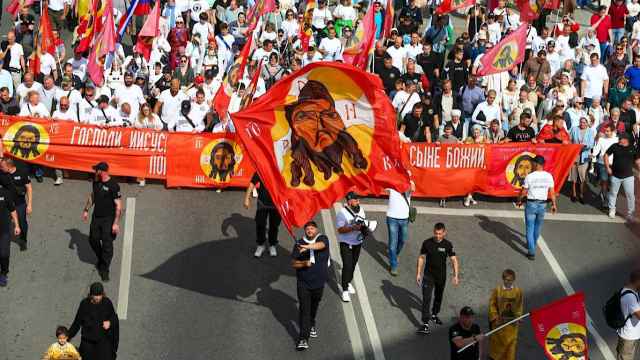Re-Enactors Relive the Battle of Borodino on 209th Anniversary
On Sept. 7, 1812, some 300,000 French and Russian soldiers clashed in one of the biggest battles of the Napoleonic Wars: the Battle of Borodino.
The battle on the fields of western Russia would prove to be a key moment in the war — for although French-led forces won the battle, they failed to secure a decisive victory.
On Saturday, history enthusiasts from around the world gathered at the Borodino battlefield some 120 kilometers west of Moscow to commemorate the event’s 209th anniversary.
Here's a look at the action:
The battle on the fields of western Russia would prove to be a key moment in the war — for although French-led forces won the battle, they failed to secure a decisive victory.
On Saturday, history enthusiasts from around the world gathered at the Borodino battlefield some 120 kilometers west of Moscow to commemorate the event’s 209th anniversary.
Here's a look at the action:
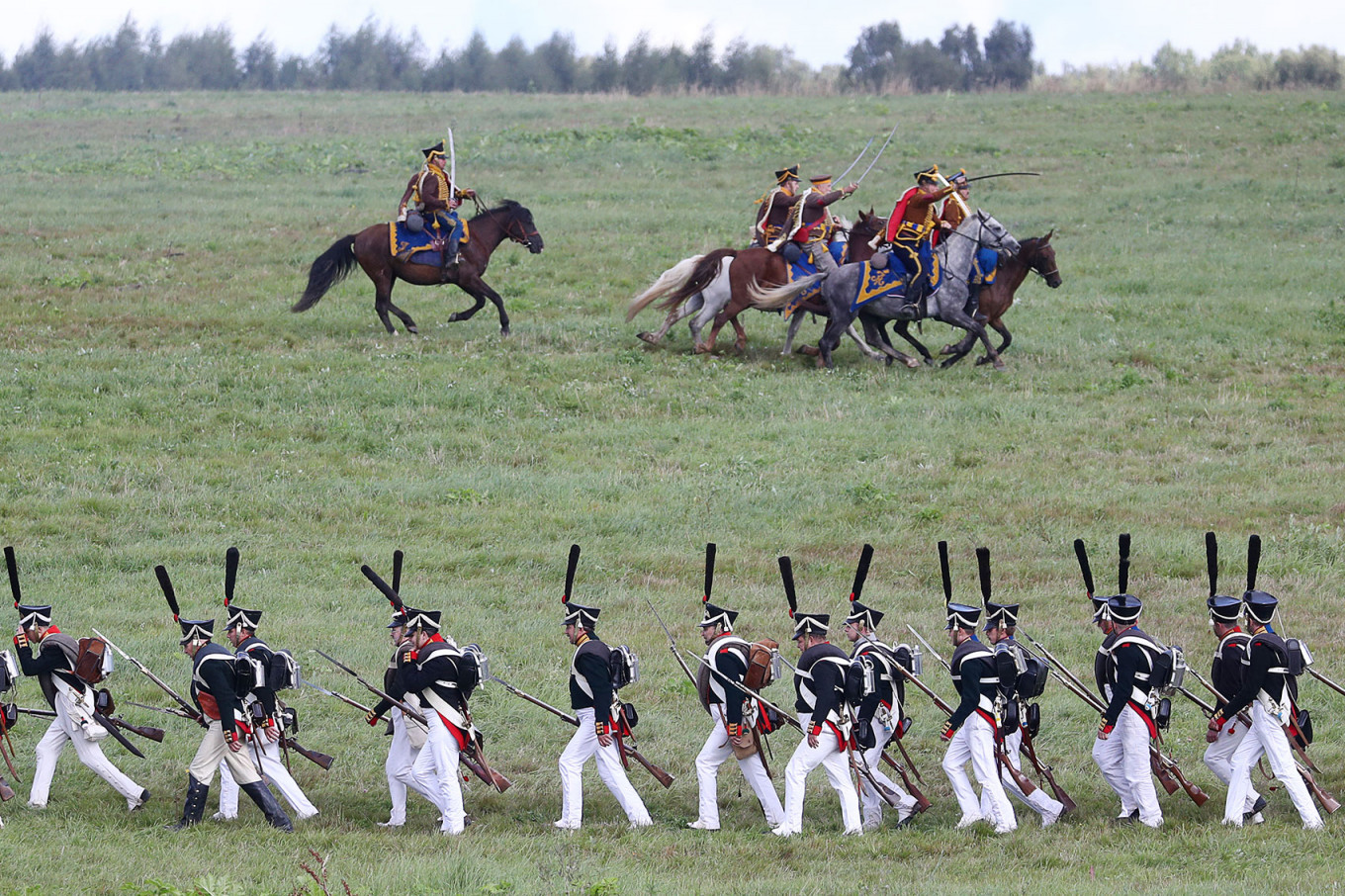
In 1812, Napoleon's Grande Armée invaded Russia with the largest army ever assembled in Europe: A force of 620,000 men, according to varying estimates.
Since the start of the invasion, Napoleon had been trying to force Russians into a major battle.
While Russian commander Mikhail Kutuzov retreated eastward in hopes of avoiding conflict, Russian forces were forced to take a stand at Borodino to defend Moscow from the rapidly advancing French army.
Since the start of the invasion, Napoleon had been trying to force Russians into a major battle.
While Russian commander Mikhail Kutuzov retreated eastward in hopes of avoiding conflict, Russian forces were forced to take a stand at Borodino to defend Moscow from the rapidly advancing French army.
Stanislav Krasilnikov / TASS
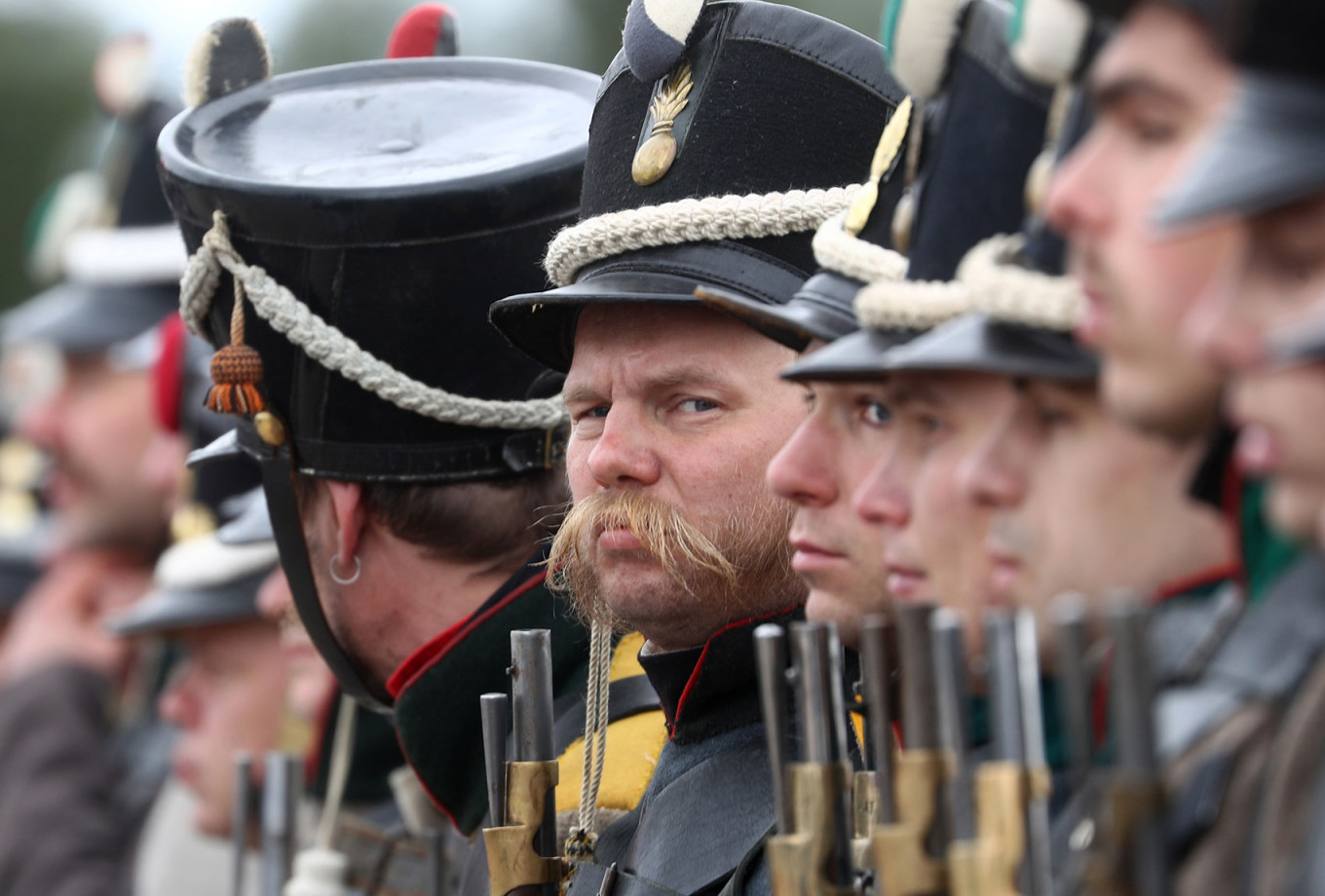
Saturday's event featured a reenactment of the fighting as well as a series of speeches and other entertainment.
Stanislav Krasilnikov / TASS
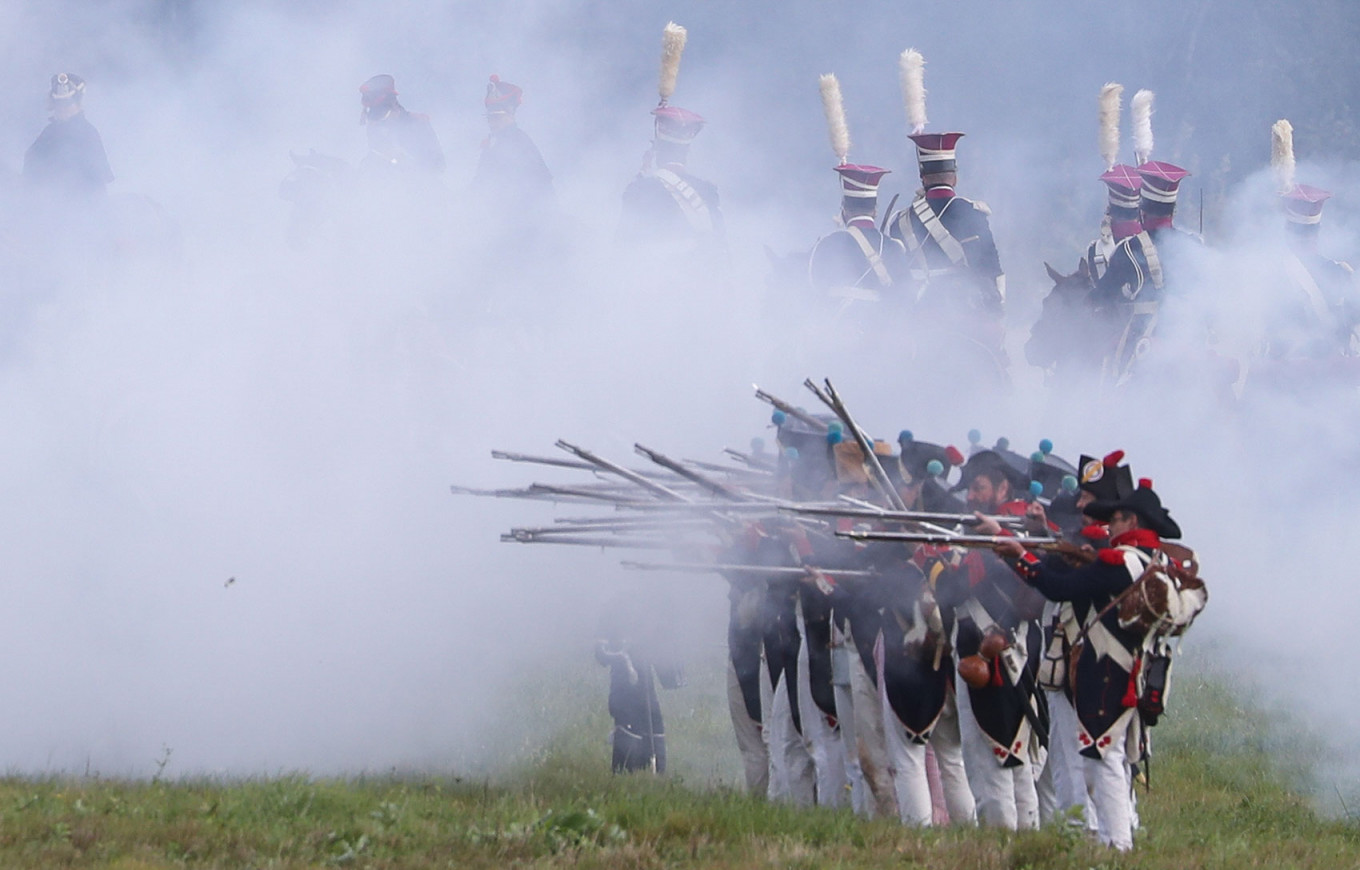
The advancing French army numbered around 138,000 — the same size as the defending Russian force.
Stanislav Krasilnikov / TASS
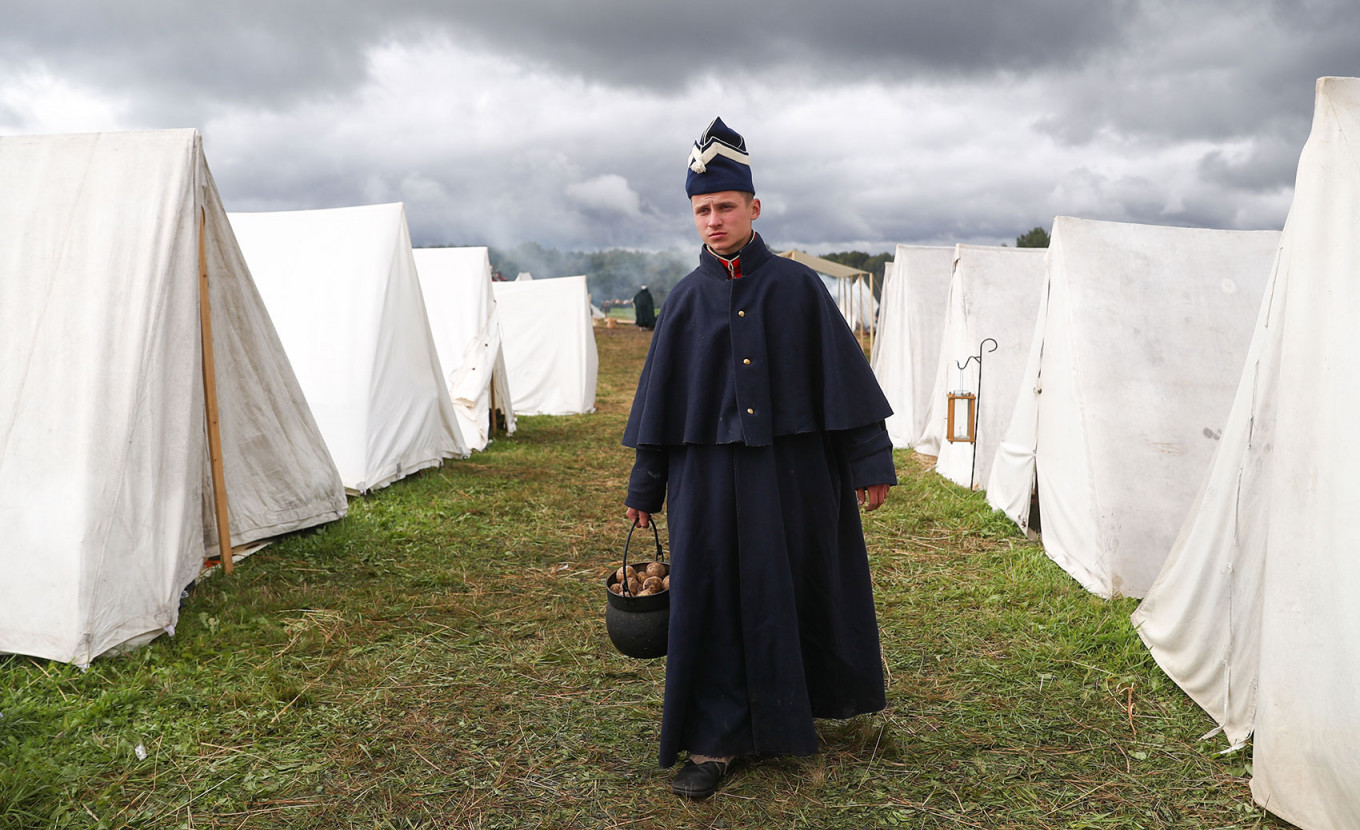
By the end of the day, some 70,000 men lay dead and roughly the same amount were wounded, according to varying estimates.
The fatalities made the battle the bloodiest day in European history until World War I.
The fatalities made the battle the bloodiest day in European history until World War I.
Stanislav Krasilnikov / TASS
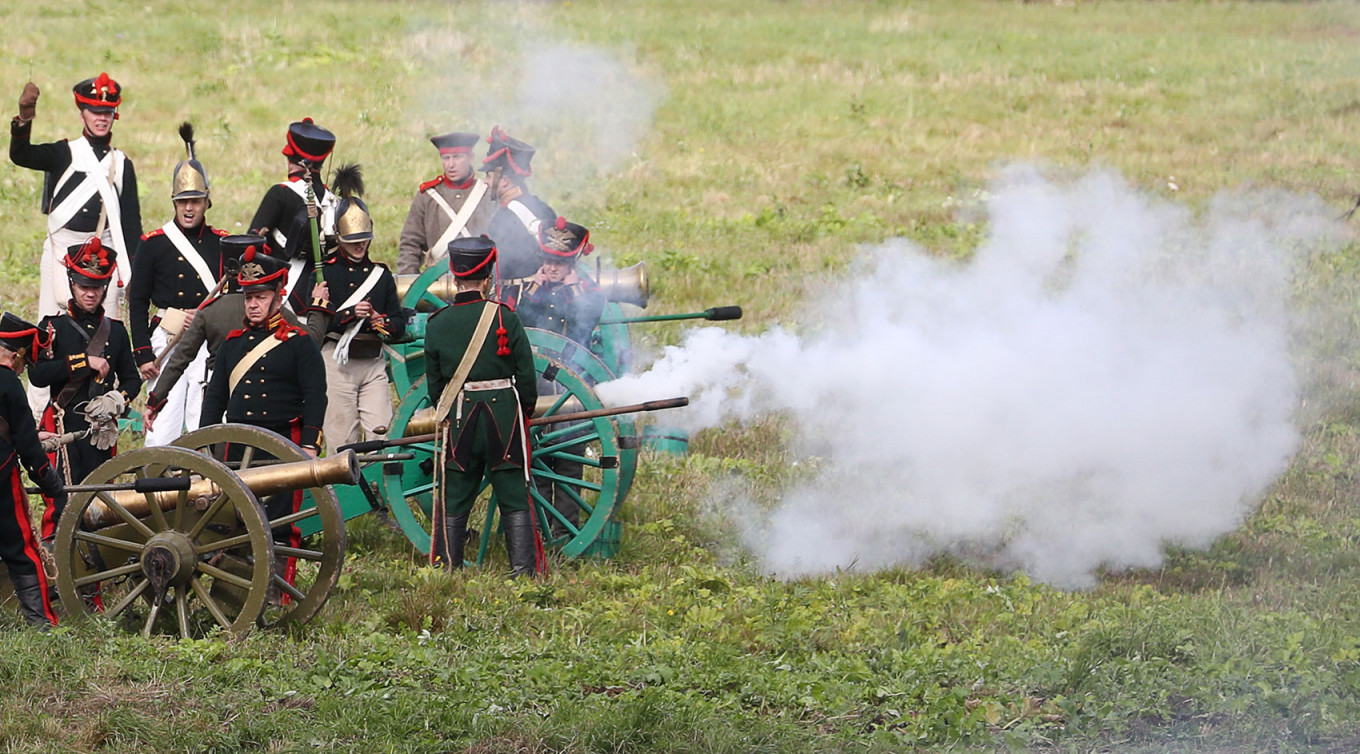
Despite the high stakes and heavy fighting, neither side would win a decisive victory that day.
Although Russians retreated after the battle and the French advanced on to Moscow, many historians — especially in Russia — think the battle could be considered a “pyrrhic victory” for the French side.
Although Russians retreated after the battle and the French advanced on to Moscow, many historians — especially in Russia — think the battle could be considered a “pyrrhic victory” for the French side.
Stanislav Krasilnikov / TASS
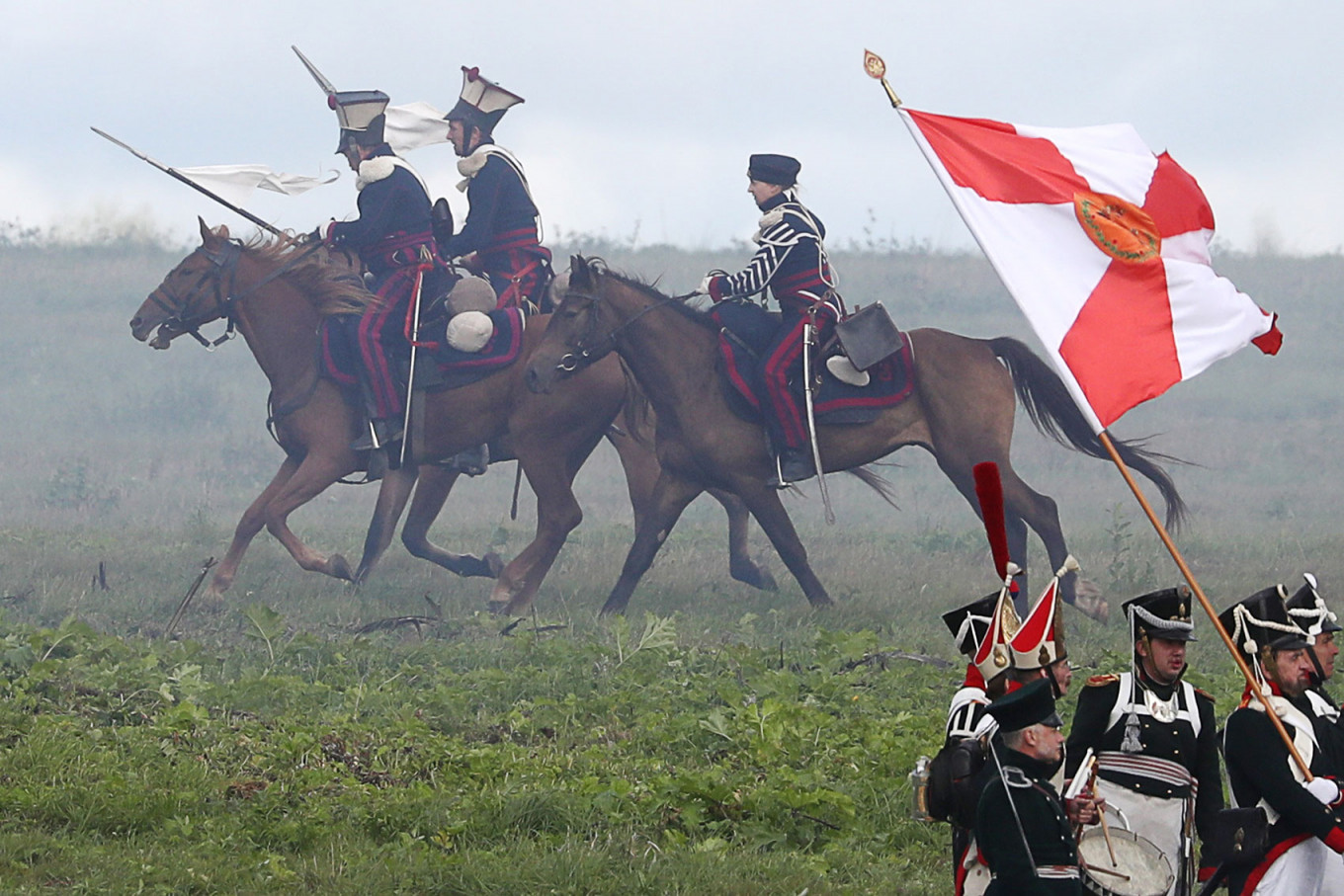
After Borodino, Napoleon’s forces occupied Moscow, Russia's largest city. However, the French army would not gain any more victories over the Russians and was forced to retreat from Moscow after several months.
Stanislav Krasilnikov / TASS
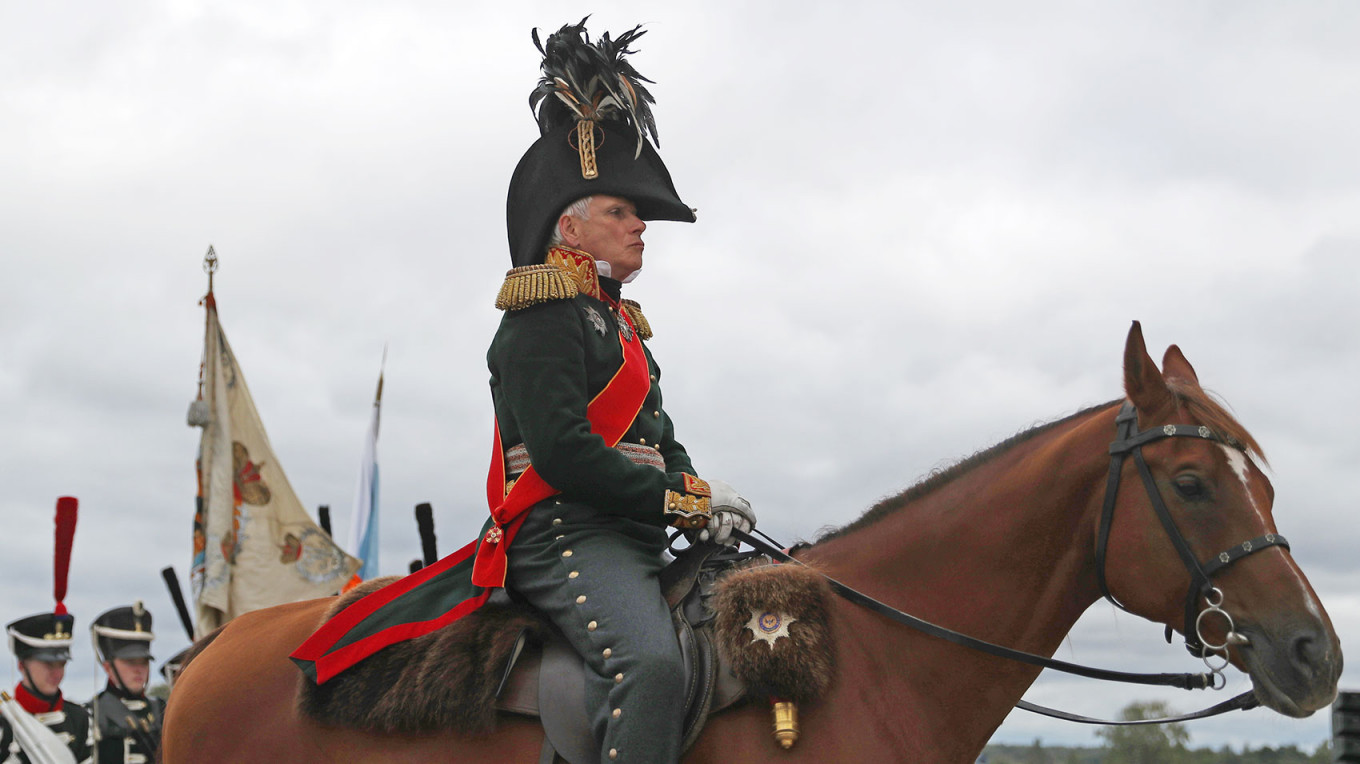
Diplomats from France, Croatia, Spain, Poland, Lithuania, the Netherlands, Serbia, Slovenia, Slovakia, Bulgaria, and Germany — countries whose forces fought on either side of the Napoleonic Wars — attended Saturday's event.
Stanislav Krasilnikov / TASS
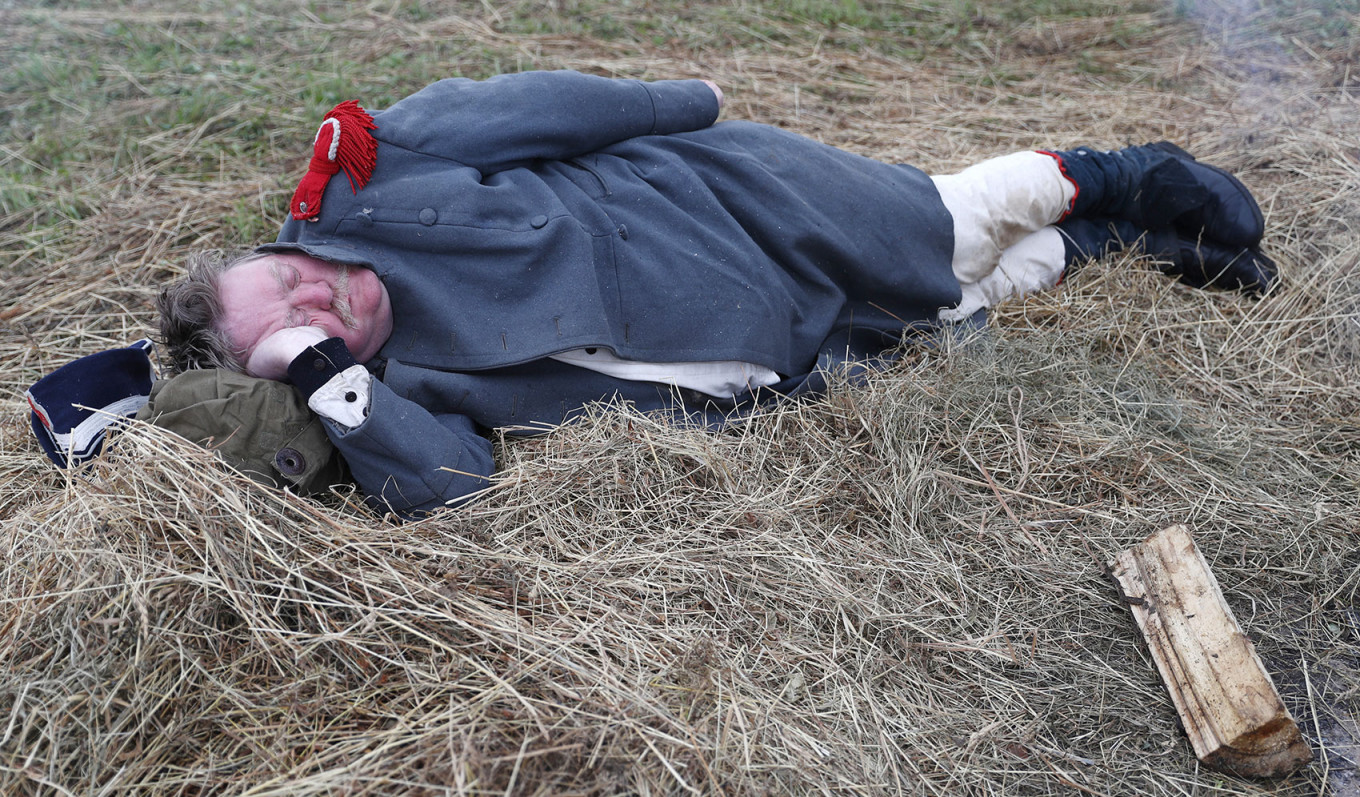
The battle became an important cultural symbol for the Russian Empire. It was described in detail in Leo Tolstoy’s "War and Peace," and was also the subject of Mikhail Lermontov's poem "Borodino."
Stanislav Krasilnikov / TASS


